Now that Vision Pro is available and the Apple Car has officially been scrapped, what’s next for the Cupertino-based tech giant? If you’ve been keeping up with the latest, you’ll know that all the big players are making a splash in AI.
Until now, Apple has been notably absent from the space. What gives? Well, as per usual, the brand is keeping its cards close to its chest. A few recent teasers let slip that there’s an Apple AI in the works. And it has finally arrived as part of iOS 18, iPadOS 18, and macOS Sequoia. Though, Apple confirmed that it won’t be rolling out until iOS 18.1, iPadOS 18.1, and macOS 15.1 in October.
In true Apple fashion, it’s not AI – rather we’ve got Apple Intelligence. It’s designed to be something that’s more personal. That sounds pretty wishy-washy – but it’s very impressive. But what exactly can it do? Here’s everything you need to know.
What can Apple Intelligence do?
Apple Intelligence isn’t just about a smarter Siri – though that’s a big part of it. Imagine an AI that truly understands you, drawing from your personal usage to tailor its responses and actions. Whether it’s generating language, recognising images, or taking actions on your behalf, Apple Intelligence does it all with a hefty dose of personalisation. Here’s the rundown:
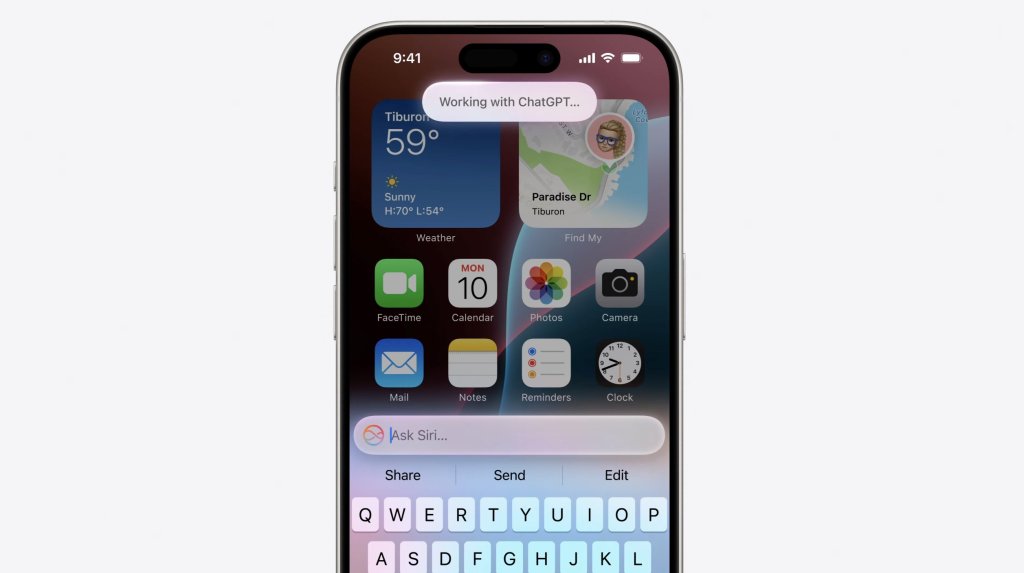


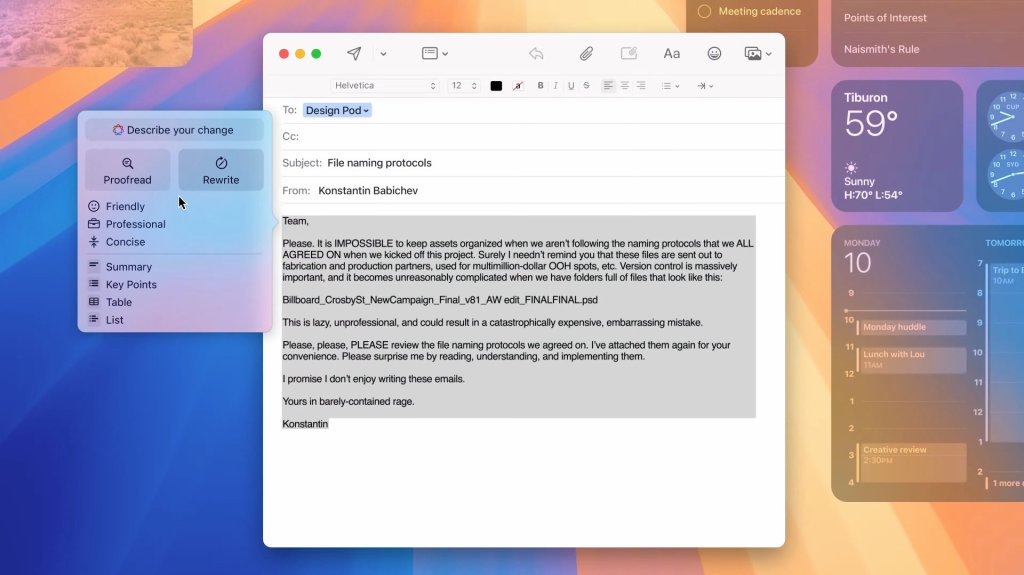

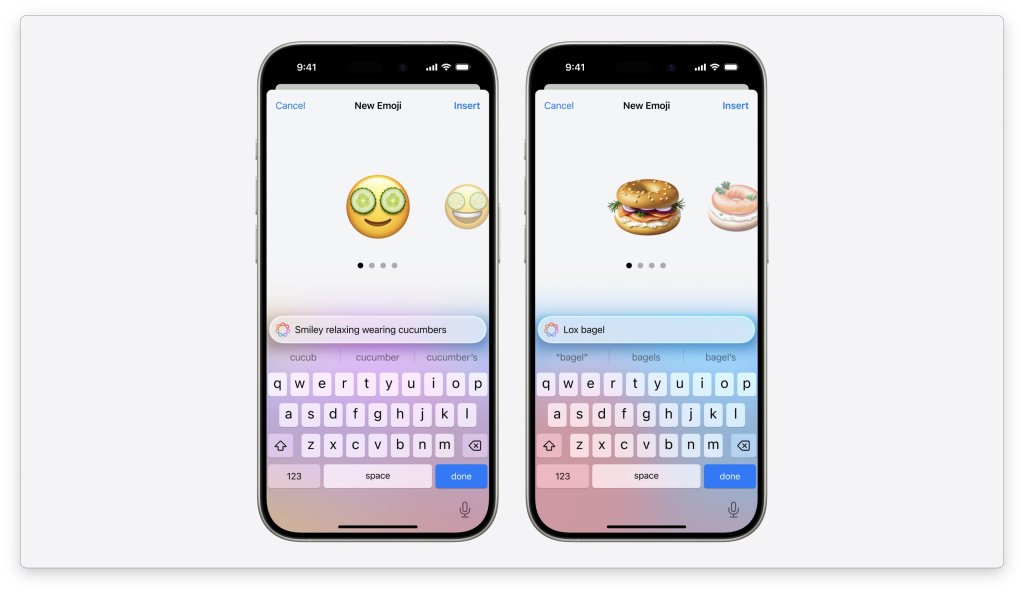

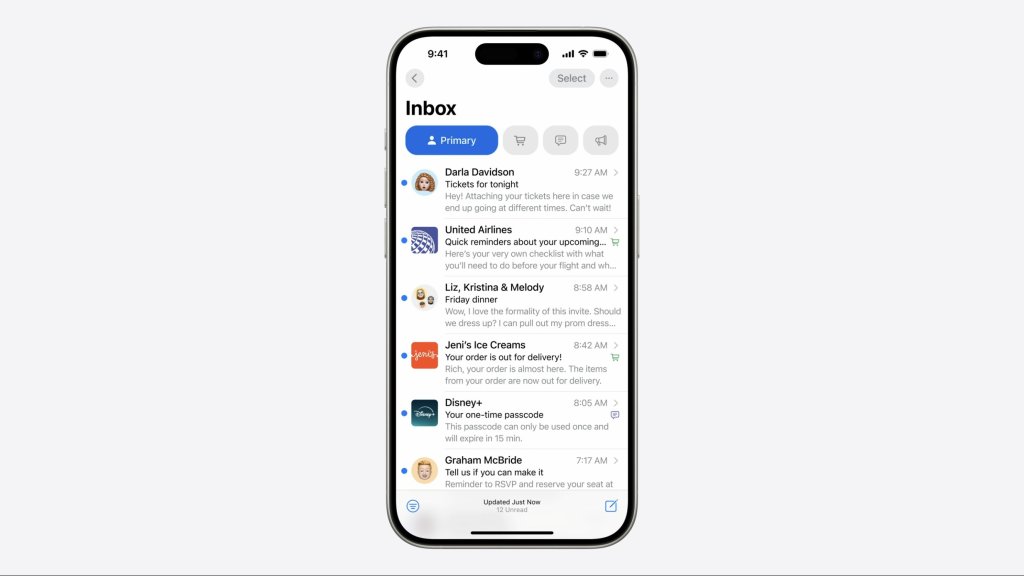

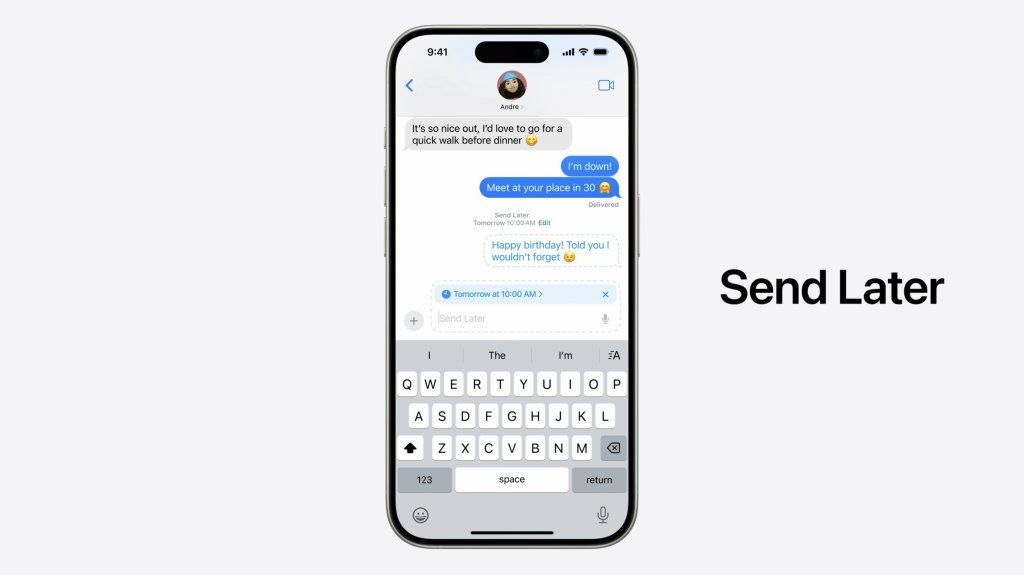

- Enhanced Siri: Finally, Siri gets the brains it deserves. This upgrade means Siri can now remember the context of your conversations, understand your commands even if you stumble over your words, and provide more helpful responses. It can add new addresses from text messages directly to contact cards, control Apple features and settings, and even move through apps to fetch specific information like flight details or photo edits.
- Prioritised Notifications: Your iPhone will now prioritise your notifications, ensuring you don’t miss anything crucial. Whether it’s a summary of your group chats or a boarding pass for your flight, the most important notifications will be front and centre.
- Smarter Writing Apps: Apple’s writing apps now feature AI-driven tools like Proofread, Smart Reply, and Rewrite. These can suggest content based on context, transcribe voice memos, and even auto-fill forms from pictures.
- Genmoji and Image Playground: Create custom emojis from text prompts and generate images in three styles – sketch, illustration, and animation. These features integrate seamlessly into your communication and productivity apps.
- Photo and Video Editing: The Photos app now boasts Clean Up, similar to Google’s Magic Eraser, allowing you to remove unwanted elements from your photos. Plus, you can search through videos using natural language and create video memories from text prompts.
- Integrated ChatGPT: Siri can now tap into ChatGPT for more complex queries, even generating images when needed. This integration expands Apple’s AI capabilities, making your interactions even more dynamic and helpful.
How does it work?
At its core, Apple Intelligence leverages on-device processing to keep your data private and secure. It uses AI models tailored to your personal usage, ensuring a unique and personalised experience. This means everything happens on your device, without sending your data to the cloud. It’s a clever blend of hardware and software, making the most of the latest iPhone, iPad, and Mac capabilities.
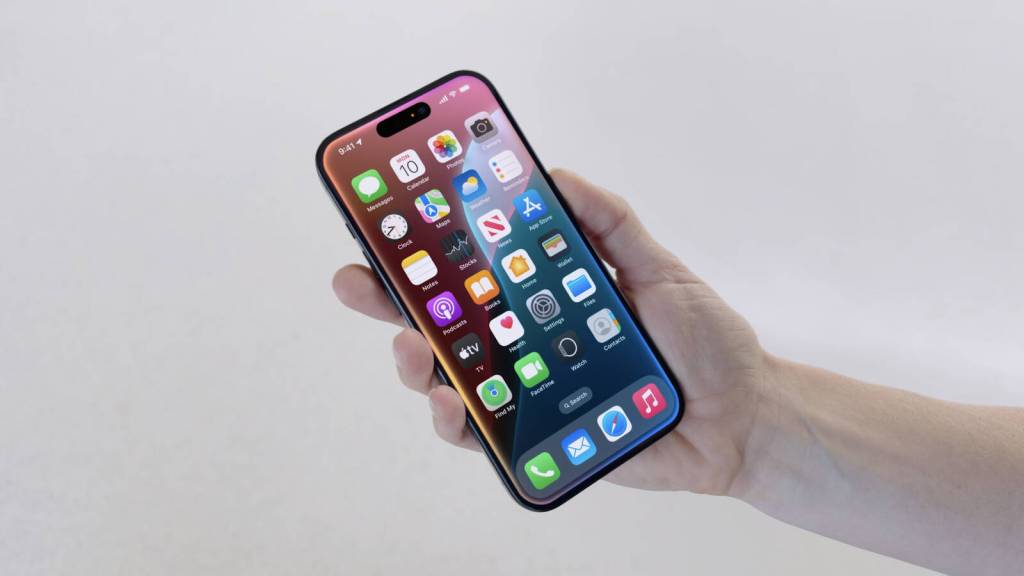

The new Siri is a prime example. It can understand and remember the context of conversations, navigate apps to fetch specific information, and even handle follow-up requests. All of this is powered by advanced machine learning models running locally on your device, ensuring your interactions are fast and secure.
Is Apple Intelligence safe?
Absolutely. Apple has always prioritised privacy, and Apple Intelligence is no different. By processing everything on-device, your data never leaves your gadget. This means you get a highly personalised AI experience without compromising your privacy. Plus, with Apple’s stringent security measures, you can trust that your information is safe from prying eyes.


As for ChatGPT, it’s not directly baked into the software. Rather, Siri will ask you before sending any data to the external service. This will happen each time you use it, and the request will be sent off-device to OpenAI. There’s been some misconception that ChatGPT can access all of your data, which isn’t true. You have to give it explicit permission each time. And even when requests are sent, they’re anonymised; and so is your IP address. So there’s no way that OpenAI knows what prompts you send.
When can I get it?
Apple Intelligence will be available across the iPhone, iPad, and Mac range, but not all devices will support it soon. The beta version has been in testing throughout summer. And the AI features are now available in the iOS 18.1 update that’s rolling out to users. You’ll need an iPhone 15 Pro series (with the A17 Pro) or later, or any device with an M-chip.
Note that it is only available in the English (US) language, so you’ll need to adjust your device and Siri settings accordingly. It’ll support other languages in December, with the iOS 18.2 update. Also note that some features, such as Genmoji, Siri’s personal context, and the ChatGPT integration are also being held back for iOS 18.2.








